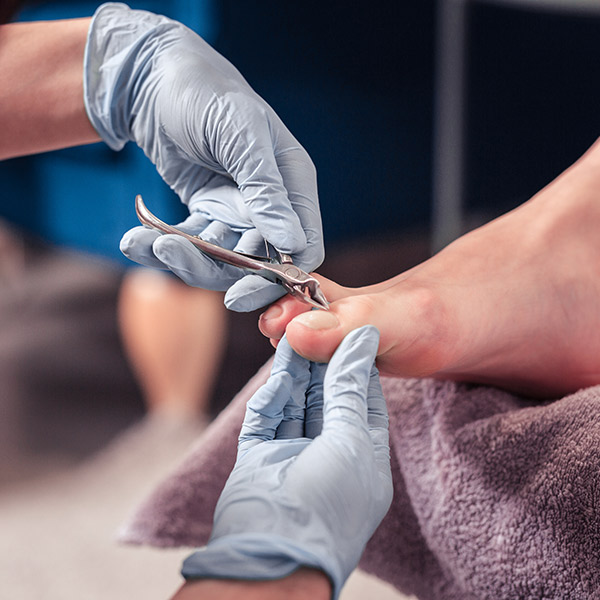




If you have diabetes, your feet might not receive enough blood. Over time, this can cause peripheral neuropathy, which is a loss of feeling.
You may not notice foot injuries because you don't feel them, and the condition can also prevent foot injuries from healing normally.
Look at your feet, including the soles, when you put your socks on in the morning and take them off at the end of the day. If you have limited mobility or limited vision, you could ask someone to do it for you or use magnifying mirrors.
See your doctor or podiatrist if:
Poor-fitting shoes can cause numerous foot problems, including corns, calluses, nail problems, and ulcers. Choose shoes that:
This can reduce blood flow to your lower legs and feet.
Cut your toenails straight across, not down the side. Cut them with nail clippers, then use an emery board to smooth the corners. Take your time when cutting your nails to avoid nicking your skin.
Don't try to treat corns or hard skin yourself with plasters or blades because these can injure your skin. See a podiatrist instead.
Wear well-fitting shoes and socks whenever possible. Going barefoot increases your risk of cuts and grazes, which may become infected. It's especially important to avoid going barefoot when out of doors.
Wash your feet daily using warm water and gentle soap. Avoid soaking your feet because prolonged contact with water can make your skin softer and more vulnerable to injury.
For example, don't dip your big toe into a bath of water to check the temperature. If the water is very hot, you may burn the skin of your feet without noticing.
Smoking impairs circulation, especially if you have diabetes, and can make leg and foot problems worse. Don't be discouraged if it takes you a few attempts to quit; this is normal.
Smoking impairs circulation, especially if you have diabetes, and can make leg and foot problems worse. Don't be discouraged if it takes you a few attempts to quit; this is normal.
Daily Affirmation: Caring for myself is a lifelong project.